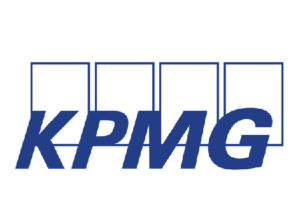In today’s tough business environment it’s crucial to make the right strategic investment decisions – and foremost amongst those is getting a successful portfolio manager to drive them. It’s a difficult job with a rare skillset – and when every dollar counts, your portfolio manager can’t afford to make mistakes. But what is it that makes a great practitioner? And how can those skills be learnt?
For industry experts Dr. Shan Rajegopal and Rich Weller of BABC Corporate Members Pcubed, the secret to becoming a successful portfolio manager is through mastering a specific and complex skillset – a dynamic mix of advanced financial understanding, personnel management, communication skills, the ability to implement the right processes, and the capacity to deploy the best possible tools for the task in hand.
The pair, who have nearly thirty years of combined experience as PPM practitioners, have been discussing the timely question of “What Makes a Successful Portfolio Manager?” in a recent article published in Pcubed’s Insight Magazine.
Rajegopal, Global Head of Innovation and Portfolio Management Practice at Pcubed (a global leader in portfolio, program and project management), has published a number of books on the subject, including the forthcoming “Portfolio Management: The Executive’s Roadmap to Innovate and Invest in Successful Projects”. Weller hails from an entrepreneurial background, joining Pcubed North America 12 years ago after building and selling a number of companies.
Rajegopal says there is a fundamental skillset every practitioner needs to be successful:
“You have to have the ability to think in terms of change management, as a whole process. You need the ability to communicate well, and especially the ability to coach and mentor the people involved. You need to be thinking – can we provide them with a template, how easy is this for people to use?
“Managing stakeholders is also key. You need to be able to communicate effectively with major stakeholders and demonstrate credibility with your audience in the way you demonstrate the structured decision-making process behind the portfolio.
“As portfolio manager you need to be able to prioritize and optimize all the demand and ideas coming in from across the organization based on the constraints you have to work with. You need to be able to think through the criteria, and demonstrate how each project is aligned with the overall strategy”.
Likewise, for Rich Weller, being able to keep the organization’s strategic direction in mind is essential. “You have to know where the organization you’re working for wants to be heading,” he says. “When it looks into the future, what does it want to have achieved?
“These strategic objectives shouldn’t just come from a financial perspective, but from the business as a whole. Where are we trying to move? What are we trying to do internally to grow ourselves and our people?
“As portfolio manager I need to be sure I know about all the potential projects coming in and I need to be able to assess each one against those objectives to ensure there is an alignment.”
For Weller, there are two final prerequisites: “Portfolio managers are made of the same kind of material as C-level executives. In particular, you need excellent people management skills – and an advanced understand of financial data”.
Pcubed, established in 1994, brings a unique, pragmatic brand of consulting to its clients with a boutique depth of expertise in complex project and portfolio management, an agile, flexible approach, and the ability to engage and focus people on delivering sustainable results. Pcubed now serves more than half of the Fortune 500 with regional headquarters in New York, Ann Arbor, London, Singapore and Sydney.
To receive your own copy of Insight magazine, including the “What Makes a Successful Portfolio Manager?” article, please sign up online at http://www.pcubed.com.
For more information or to request an interview, please contact Linda Lavine at linda.lavine@pcubed.com, or call +1 646 652-7951.












































